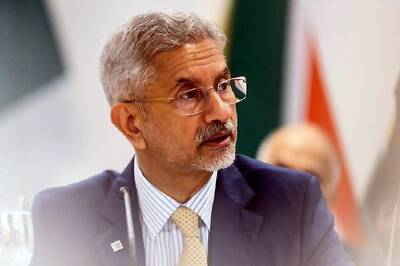
views
Dhaka: A day after he was sacked as the chief of the Bangladesh's Grameen Bank, Nobel Laureate Muhammad Yunus on Thursday took his battle to the court to overturn the government's decision to remove him from the institution he founded.
Yunus petitioned the High Court challenging his sacking after the Bangladeshi Central Bank ordered him out, saying he had overstayed his tenure.
Apparently keeping the high-profile nature of the case, the court took up initial hearing of the case on Thursday, but fixed March 6 for delivering an order on the petition.
Yunus, 70, has been in a running battle with Prime Minister Sheikh Hasina since last year after allegations by a Norwegian television channel that his bank had misappropriated foreign funds by dodging taxes and accusations that he had overstayed in his post long after the retirement age of 60.
Younus has denied financial irregularities and political observers say that the fight between him and Hasina was over the banker's political ambitions.
Along with Yunus as many as nine Grameen Bank directors had moved a supporting petition for him.
The sacking of the noted micro-financier has come under criticism internationally, with Norway's international development minister flaying the removal of Yunus from the post.
International supporters, including the US Ambassador James F. Moriarty, have rallied around him. Moriarty told reporters that the "unusual" removal of Yunus was "very difficult to understand."
"It strikes us as an unusual way to handle a Nobel laureate who is considered outside (of Bangladesh) as one of the greatest Bangladeshis," the envoy said.
The celebrated micro-financier set up the Grameen Bank and has been its managing director since 2000, but under the country's law the government's has 25 per cent stake in the institution.
Earlier, Yunus s chief counsel Kamal Hossain told the court that the government had removed the Grameen Bank founder from his post without issuing any "show cause notice".
He sadi while Yunus himself had sought to retire earlier, the Nobel Laureate had continued as its managing director at the request of the institution s board of directors.
His lawyer told PTI that Yunus had "filed a writ petition against the Bangladesh Bank order relieving him from the post of Managing Director of the Grameen Bank".
Earlier, a Central Bank official had said Yunus had been stripped off his position as his appointment violated the Grameen Bank Ordinance 1983 that stipulates a Managing Director must be appointed with prior approval of the central bank.
According to the ordinance, Yunus was serving as a whole-time officer and the chief executive of the Bank.
In brief comments at the court premises, Yunus told mediapersons that he wanted a "graceful solution", allowing him to step down from his pioneering microfinance bank "so that whoever comes to the position after me, will have a good bank to run well".
"I have said repeatedly that I don't want to be in the position of managing director but the (Grameen Bank) board would not accept my resignation. They asked me to stay and this is why I am in this position now," he said.
Finance Minister Muhith, in a written statement said: "I would like to state at the outset that we are not particularly happy about the way in which developments have taken place so far".
"I wish matters were resolved in some other manner.. Personally I had always been in touch with him both informally as well as in my official capacity," Muhith said, calling Yunus his personal friend.
Muhith said during his "final discussion" on Wednesday with Yunus, he made his "voluntary retirement conditional on creation of a congenial environment because he feared that otherwise the institution would collapse".
"(But) it was difficult for me to create 'a congenial environment' to his liking and I do not believe that Grameen Bank would collapse with change of guards after so many years of its steady and proud performance," he said.
"Hence the law took its routine course as Bangladesh Bank exercised its powers under section 45 of the Banking Company Act of 1991, the statement also read out to the envoys and aid agencies said.
Meanwhile, the US ambassador, who has supported Yunus, hoped that an amicable compromise can be reached.
The British High Commission in an emailed statement to PTI said UK was aware of the event concerning Yunus and "we understand this is now a matter before the court".
"(But) together with the international community, we are following the development very closely. Grameen Bank is a well known and well respected development institution. We wish to see it continue to play its important role in Bangladesh and globally. We have great respect for Professor Yunus and the work he has carried out with Grameen," it said.
Norway, a major donor of Grameen Bank, criticized the ouster of Yunus. International Development Minister Erik Solheim told news agency NTB that his removal was "a very sad development."
"What we see is a brutal internal power struggle in Bangladesh...Yunus was a popular person, both at home and abroad and that always leads to opponents," he added, hinting at the media speculation over rivalry between Yunus and Hasina.
According to media reports, the decision baffled the borrowers of the Grameen Bank while leading Bangladeshi economists warned that the government's "hasty decision" could prompt a collapse of confidence or even a bank run in the country's vast microfinance sector.
Grameen Bank, which is 25 per cent state owned, has more than eight million customers, providing collateral-free loans in 82,000 villages across Bangladesh.
Several analysts earlier said Yunus's troubles stem from 2007 when he announced forming of a political party, an idea which was visibly unwelcomed by Prime Minister Sheikh Hasina of Awami League and her arch rival Khaleda Zia.
Hasina earlier publicly disparaged his works, alleging his operations trapped poor people in poverty cycle. She had also questioned the bank's transparency in fund transactions.


















Comments
0 comment